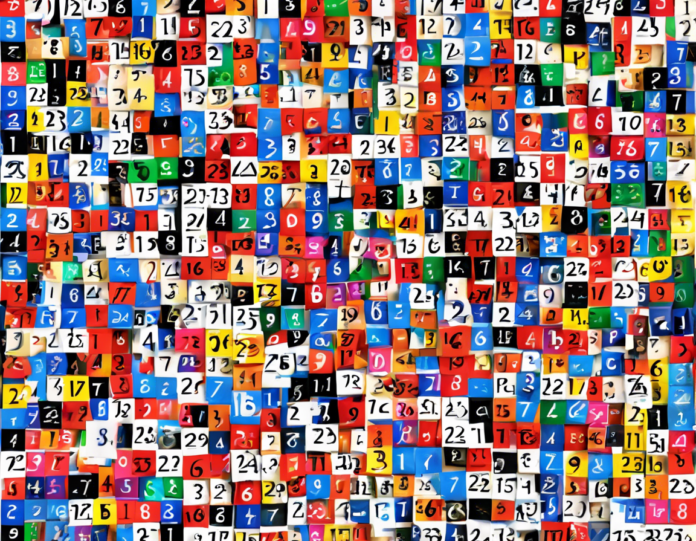Overview of Prime Numbers
In the realm of mathematics, prime numbers hold a special place as the fundamental building blocks of the natural numbers. A prime number is a whole number greater than 1 that can only be divided by 1 and itself without leaving a remainder. In other words, a prime number has exactly two distinct positive divisors: 1 and the number itself. These numbers possess unique properties that have fascinated mathematicians for centuries, with their study uncovering profound insights in various mathematical fields.
What Makes 23 Unique as a Prime Number?
Among the infinite set of prime numbers, 23 stands out for several reasons. One of the most intriguing aspects of 23 is that it is part of a select group of prime numbers known as “twin primes.” Twin primes are pairs of prime numbers that have a difference of 2 between them. In the case of 23, its twin prime is 23 + 2 = 25, which is not a prime number since it can be divided by 5. This intriguing relationship with its neighboring prime further highlights the distinctiveness of 23 within the realm of prime numbers.
Prime Factorization of 23
The prime factorization of a number involves expressing it as a product of prime numbers. For the prime number 23, its prime factorization is straightforward as it is already a prime number itself. Therefore, the prime factorization of 23 is simply 23. This demonstrates the indivisibility and prime nature of the number 23, further solidifying its status within the realm of prime numbers.
Proving the Primality of 23
To formally prove that 23 is a prime number, one can employ the method of trial division or other advanced techniques such as the Sieve of Eratosthenes. When subjected to trial division, it becomes apparent that 23 is only divisible by 1 and 23 without any other factors, thus satisfying the definition of a prime number. This rigorous mathematical proof reinforces the prime nature of 23 and showcases its unique position within the set of prime numbers.
Historical Significance of 23 as a Prime Number
Throughout history, prime numbers have captured the imagination of mathematicians, philosophers, and scholars across civilizations. The enigmatic nature of prime numbers, including 23, has inspired curiosity and contemplation, leading to groundbreaking discoveries in mathematics and related fields. Notably, the study of prime numbers has played a pivotal role in encryption, cryptography, and number theory, shaping the course of modern mathematics and technology.
Applications of Prime Numbers in Modern Society
The importance of prime numbers, including 23, extends far beyond theoretical mathematics. In the realm of cybersecurity, prime numbers play a crucial role in encryption algorithms such as RSA (Rivest–Shamir–Adleman), where the security of the system relies on the difficulty of factoring large composite numbers into their prime factors. By leveraging the unique properties of prime numbers, including 23, modern encryption systems ensure secure communication, data protection, and online transactions in an increasingly digitized world.
Conclusion
In conclusion, 23 stands as a prime number with distinct characteristics that set it apart within the realm of mathematics. Its primality, unique properties, and historical significance underscore the profound impact of prime numbers on various fields of study. By delving into the intricacies of prime numbers like 23, we gain a deeper appreciation for the elegance and complexity of mathematical concepts that continue to shape our understanding of the world.
Frequently Asked Questions (FAQs)
- Is 23 a prime number?
-
Yes, 23 is a prime number as it is only divisible by 1 and 23 without any other factors.
-
What is the significance of 23 as a prime number?
-
23 is notable for being a prime number and part of the twin prime pair (23, 25), showcasing its unique position within prime numbers.
-
How can I prove that 23 is a prime number?
-
To prove that 23 is prime, one can use trial division or mathematical techniques to demonstrate its indivisibility except by 1 and 23.
-
What practical applications do prime numbers like 23 have in modern society?
-
Prime numbers, including 23, are integral to encryption algorithms like RSA, ensuring secure communication and data protection in cybersecurity.
-
Can prime numbers like 23 be used in cryptography?
-
Yes, prime numbers such as 23 are crucial in cryptography for creating secure encryption systems that safeguard sensitive information.
-
What role do prime numbers play in number theory?
-
Prime numbers are foundational to number theory, serving as key elements in the study of divisibility, factorization, and mathematical structures.
-
Are there any conjectures or unsolved problems related to prime numbers like 23?
-
Yes, numerous unsolved problems in mathematics center around prime numbers, including the Twin Prime Conjecture and the distribution of prime numbers.
-
Can prime numbers like 23 be generated using mathematical algorithms?
-
While prime numbers are inherently natural and not generated by algorithms, various methods exist to find, verify, and study prime numbers like 23.
-
How do prime numbers contribute to mathematical research and exploration?
-
Prime numbers serve as fundamental elements in mathematical research, contributing to areas such as number theory, cryptography, and algebraic structures.
-
What sets prime numbers like 23 apart from other types of numbers in mathematics?
- The unique divisibility properties of prime numbers like 23, being only divisible by 1 and themselves, distinguish them from composite numbers and play a crucial role in mathematical analysis and applications.

